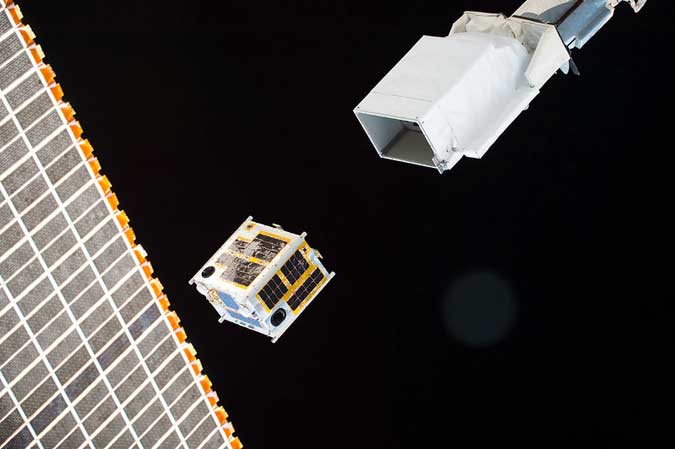PhilSA inks agreements to enhance space industry

The Philippine Space Agency (PhilSA) signed agreements on space cooperation with the United Nations Office for Outer Space Affairs (UNOOSA) and Japan Aerospace Exploration Agency (JAXA) on June 4 and June 11, respectively, to strengthen the institutions’ shared commitment to the peaceful uses of outer space.
“When we build space technologies, we create opportunities to fortify local industrial capabilities, such as those needed to build difficult, differentiated products that work in harsh environments with high reliability,” PhilSA director general Joel Joseph S. Marciano, Jr., told BusinessWorld in an e–mail interview. “When we mobilize or use space-enabled data or information, we promote evidence-based policies that lead to better governance, productive communities, and inclusive development.”
Under their memorandum of agreement (MOU), PhilSA and UNOOSA will explore opportunities for:
- Joint capacity-building activities at the national level to enhance the use of space science and technology for socio-economic development, particularly in line with the implementation of the Sustainable Development Goals;
- Using space-based information for disaster risk reduction and emergency response through the UN Platform for Space-based Information for Disaster Management and Emergency Response (UN SPIDER) program;
- Expanding mutual collaboration on activities related to international space law; and
- Securing collaboration for joint public awareness and education outreach initiatives on the importance of space science and technology for socio-economic development.
“PhilSA will cascade these efforts and activities to the local industry, the private sector, enterprises, and startups, by shining a spotlight on opportunities to take part in the global space industry and economy, and fostering better awareness of issues concerning the responsible and sustainable use and exploitation of outer space,” Mr. Marciano said.
JAPAN COLLAB
PhilSA signed a memorandum of cooperation (MOC) with JAXA to explore opportunities for collaboration in the areas of space applications; satellite development; space environment utilization; capacity-building for space-related technology development; space science and exploration; and the promotion of the space industry.
Japan is the first country to have signed an agreement with PhilSA, and the MOC opens doors for further discussions in the area.
“[The Philippines and Japan] already have accumulated experiences in space cooperation,” said Hiroshi Yamakawa, JAXA president, citing the areas of satellite deployment and remote sensing data, particularly in disaster risk reduction. “There are so many areas of [possible] collaboration in the future.”
The Philippines, through the Department of Science and Technology, collaborated with Japanese universities in the successful development and launch of the Philippines’ first microsatellites, Diwata-1 and Diwata-2, and the nanosatellites Maya-1 and Maya-2. Its recently completed Maya-3 and Maya-4, the first Philippine university-built nanosatellites, were turned over to JAXA this April and are set to be launched this year.
DISASTER RESILIENCE
Disaster resilience is one of the most important uses of satellite data in the Philippines. It was used to evaluate the extent of the Taal Volcano’s ashfall when it erupted in 2020, and also to monitor the drought that hit Occidental Mindoro in 2019.
Optical imagery from Diwata-2 was also used to determine the relationship between air quality and coronavirus disease 2019 (COVID-19) cases: cities in the National Capital Region with high levels of nitrogen dioxide, a gaseous pollutant from cars that burn fossil fuels, also had a high number of COVID-19 cases and deaths.
“One target of cooperation is to further strengthen our in-country capabilities in the use of space-based information — satellite images, in particular — in all phases of the disaster management cycle. This cycle ranges from risk reduction or mitigation, preparedness, and response to recovery,” said Mr. Marciano in the same interview. “We emphasize not just the use, but also the importance of endogenous capacity to generate, process, and attune space-enabled information for our purposes.” (Emphasis Mr. Marciano’s.)
The agency can aid local government units and other agencies in this regard by providing access to complementary sources of data and tools, as well as relevant training that disseminate its current know-how.



